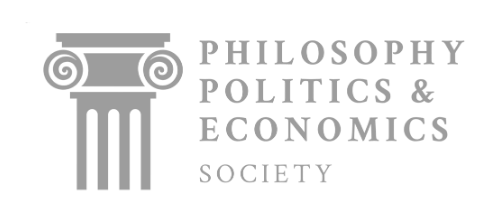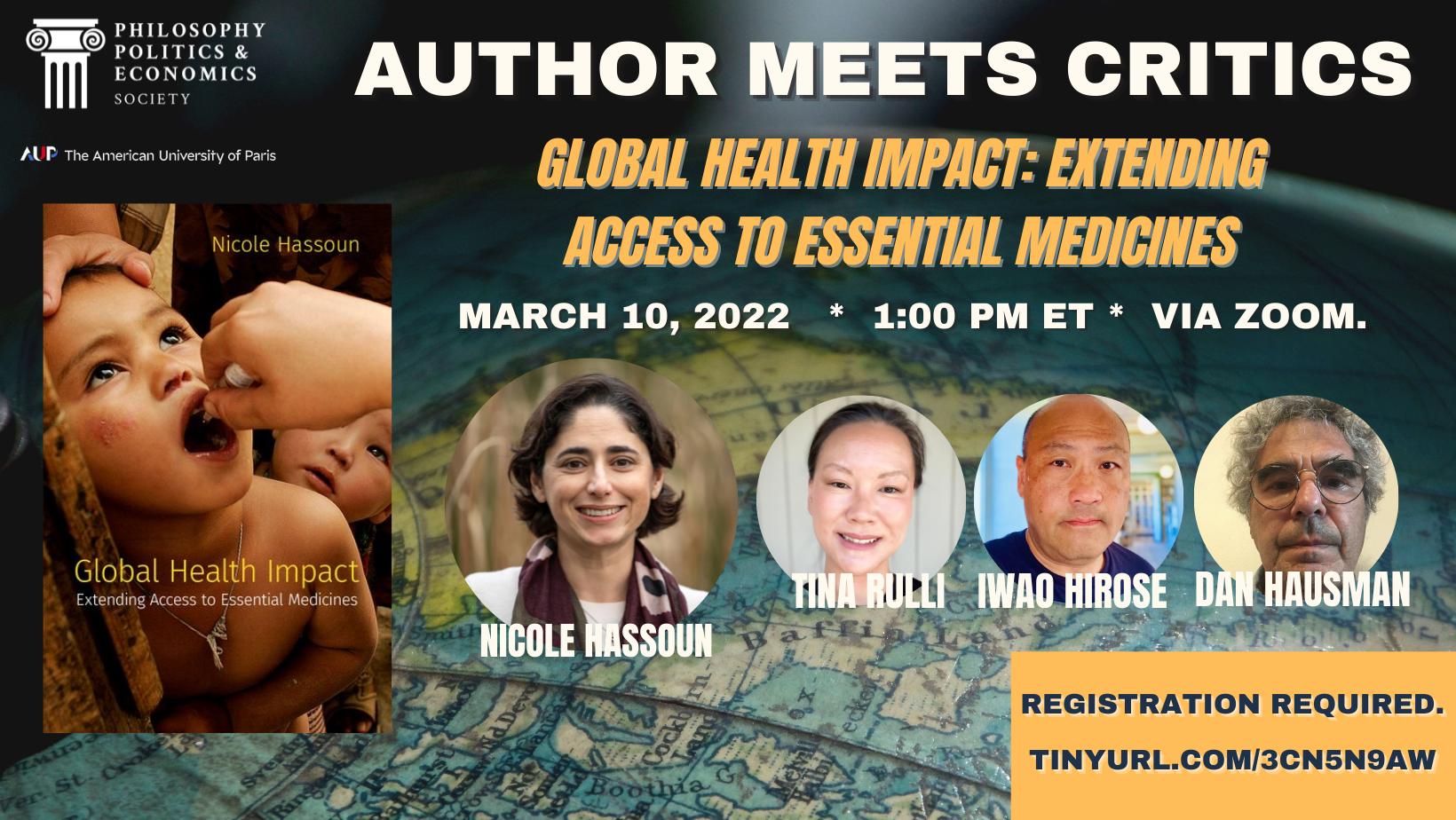Registration:
https://unc.zoom.us/webinar/register/WN_jIivrbEZRsCFvYHNNJgR6A
Event Abstract:
As the COVID-19 pandemic surges around the world, for the first time many individuals in wealthy countries, such as the United States, have learned what it is like to lack access to essential medicines. However, this has been a reality for low- and middle-income countries around the world for years that are already dealing with localized epidemics from deadly diseases such as HIV, tuberculosis, and malaria. While treatments exist for these illnesses, underdeveloped health infrastructures, extremely high price points of pharmaceuticals, and a general lack of global initiative to assist these nations has prevented many from being cured, which caused about 160,000,000 disability-adjusted life years (DALYs) to be lost in 2015.
Sponsored by the PPE Society andThe American University of Paris, please join us for a conversation with author Nicole Hassoun–and commentators Iwao Hirose, Tina Rulli, and Dan Hausman, moderated by Brian Berkey–on Global Health Impact: Extending Access to Essential Medicines, which argues that every person around the world has a human right to health, and thus access essential medicines should not depend on where one is born. The book engages with work in ethics and economics on measuring health and new proposals for addressing the access to essential medicines problem including the Global Health Impact project (global-health-impact.org/new) which has recently been widely discussed in the press. Should pharmaceutical companies expand access to essential treatments? Must companies provide these medicines at reasonable price points? What does corporate social responsibility require? How can consumers make a difference and what does ethical consumption require with respect to health? How, if at all, can international organizations, companies, and individuals incentivize new research and development of vaccines and other essential medicines? What must wealthy developed countries, including the United States, do to increase their investments’ global health impact? Global health lies directly at the intersection of philosophy, politics, and economics and equitable access to new vaccines and other treatments for devastating diseases like COVID-19 affects the overall flourishing of individuals, nations, and the world as a whole.
This conversation will bring together the following scholars working in philosophy, ethics, economics, public health, and politics to facilitate these important conversations on global health, philosophy, politics, and law:
Author:
Commentators:
Tina Rulli is an Associate Professor in the Philosophy Department at the University of California, Davis. She specializes in normative ethics and bioethics, with a focus on population ethics and reproductive technologies. Prior to UCD, she was a postdoctoral fellow at the National Institutes of Health Clinical Center Bioethics Department. She received her PhD from Yale University.
Iwao Hirose is Professor and Canada Research Chair in Value Theory and the Philosophy of Public Policy at McGill University, Canada. He is the author of The Ethics of Health Care Rationing (2014, 2022; with Greg Bognar), Moral Aggregation (2015), Egalitarianism (2015), and The Ethics of Pandemics (forthcoming). He also co-edited Oxford Handbook of Value Theory (2015; with Jonas Olson) and Weighing and Reasoning (2015; with Andrew Reisner).
Daniel Hausman taught at the University of Maryland, Carnegie Mellon, and at the University of Wisconsin-Madison before joining the Center for Population-Level Bioethics at Rutgers University. His research addresses methodological, metaphysical, and ethical issues at the boundaries between economics and philosophy, and currently focuses on the allocation of health care. Hausman co-founded the journal, Economics and Philosophy with Michael McPherson. In 2009 he was elected to the American Academy of Arts and Sciences.
Moderator:
Brian Berkey is Assistant Professor in the Department of Legal Studies and Business Ethics in the Wharton School at the University of Pennsylvania, and holds a secondary appointment in the Department of Philosophy at Penn. During the 2018-19 academic year, he was a fellow-in-residence at the Edmond J. Safra Center for Ethics at Harvard University. He works in moral and political philosophy, including environmental ethics and business ethics. Topics that he’s published on include moral demandingness, individual obligations of justice, climate ethics and justice, exploitation, ethical consumerism, justice for non-human animals, and effective altruism.

